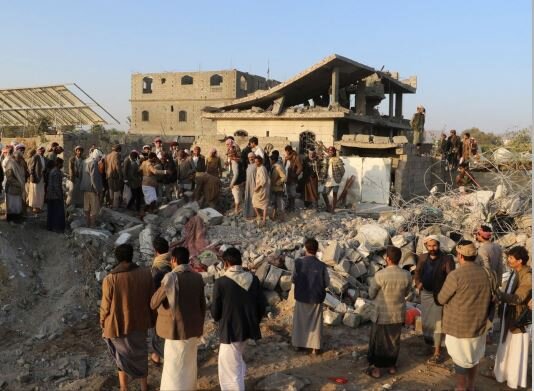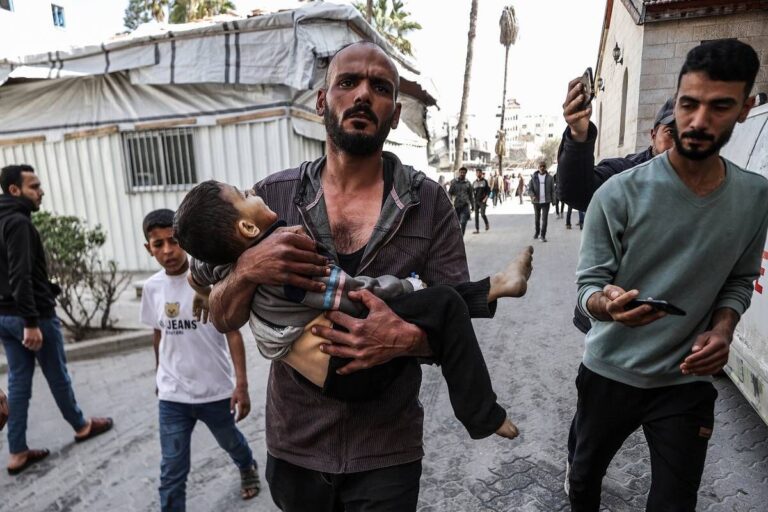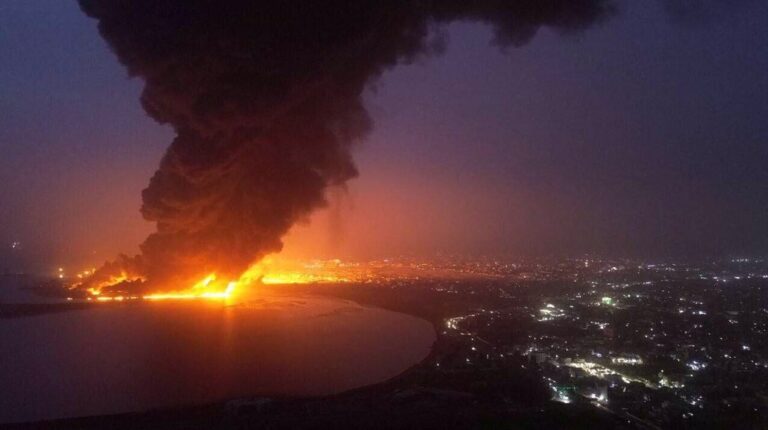Unavoidable Retribution: Yemen Strikes Back After Deadly US Raids
Recent airstrikes by American and British forces in Yemen have tragically resulted in the deaths of over 30 civilians, with at least 100 others injured. The majority of the casualties include vulnerable populations such as women and children, highlighting the devastating impact of these military actions on civilian life.
These airstrikes targeted various locations in Yemen, primarily focusing on the capital city of Sanaa, along with the provinces of Saada, al-Bayda, and Dhamar, situated in the southern region. Reports indicate that the strikes predominantly affected residential areas and critical civilian infrastructure.
In particular, the strikes damaged a local power station in Dhahyan, Saada province, leading to widespread power outages in the area. This incident has sparked outrage and condemnation from various Yemeni political bodies.
The Supreme Political Council in Yemen has condemned the U.S. airstrikes, labeling them an act of aggression and an indirect support for the Israeli occupation. A statement released by the council emphasized that “targeting civilians proves America’s failure in confrontation and will not deter us from our stance in support of Gaza.” They further warned that “those who attack Yemen will be punished in a professional and painful manner.”
These airstrikes occurred shortly after the Yemeni armed forces reiterated their ban on Israeli ships traversing designated operational areas in the Red Sea, Arabian Sea, Bab al-Mandab, and the Gulf of Aden. This announcement, made last Tuesday, came after the expiration of a deadline set by Ansarallah leader Sayyed Abdul-Malik al-Houthi. The deadline was aimed at pressuring Israeli authorities to reopen border crossings and facilitate humanitarian aid into Gaza.
Despite no reported operations from Ansarallah following the deadline, experts believe that vessels associated with Israel have been avoiding the waters designated by Yemeni forces.
In a public statement, Mohammad Abdel Salam, the official spokesperson for the Sanaa government, declared:
“The U.S. airstrikes on Yemen are a blatant aggression against an independent state and an encouragement for the Israeli enemy entity to continue its unjust siege on Gaza. The U.S. president’s claim of a threat to international navigation in the Bab al-Mandab Strait is false and misleads international public opinion. The maritime blockade announced by Yemen in support of Gaza is limited only to Israeli shipping until humanitarian aid is allowed into Gaza… We affirm that international navigation in the Red Sea will remain safe from Yemen’s side and that the American airstrikes mark a return to the militarization of the Red Sea, which is the real threat to international navigation in the region.”
A senior Yemeni official has warned that the attacks on Yemen “will not go unanswered,” suggesting an escalation in support for Gaza’s resistance in response to this aggression. The official reiterated that “no Israeli ships will pass through the designated maritime area,” while vowing that Ansarallah will hold American leaders accountable for their actions.
Mohammed al-Bukhaiti, a member of the Ansarallah political office, expressed similar sentiments, stating, “The U.S. attack on Yemen is unjustified, as the Yemeni armed forces are targeting the Zionist entity.” In a television interview, he articulated, “Everyone knows we are sincere in our responses. To those who accuse us of being reckless, we say that those who align with the U.S. and Israel are the real risk-takers.”
Al-Bukhaiti emphasized that retaliation against the U.S. attack is inevitable, asserting that there is little difference between the Trump and Biden administrations regarding their policies towards Yemen. He affirmed that Yemen will remain steadfast in its support for Palestine and its opposition to the United States, regardless of the consequences.
He concluded his statements by reinforcing that “what sets this battle apart from previous ones is that it is now clear-cut, a battle between absolute right and absolute wrong.”
For over 15 months, the United States, Israel, and Britain have consistently targeted positions in Yemen that they allege belong to Ansarallah. Despite these ongoing aggressions, the government in Sanaa has maintained its military operations against the Israeli occupation, demonstrating no signs of backing down.
The continuation of such military actions raises critical questions about the humanitarian impact on Yemen’s civilian population and the broader geopolitical implications in the region. As the situation evolves, the international community watches closely, hoping for a resolution that prioritizes peace and the protection of innocent lives.






